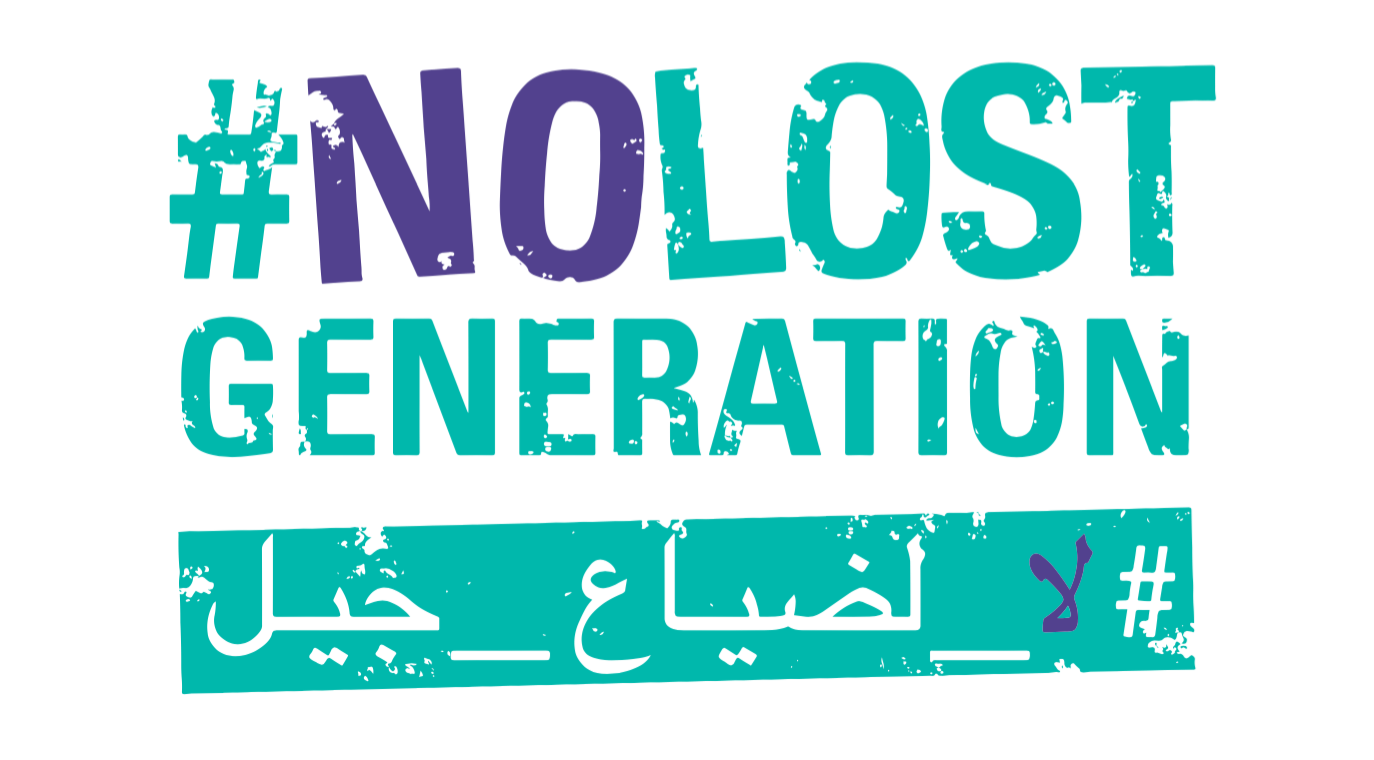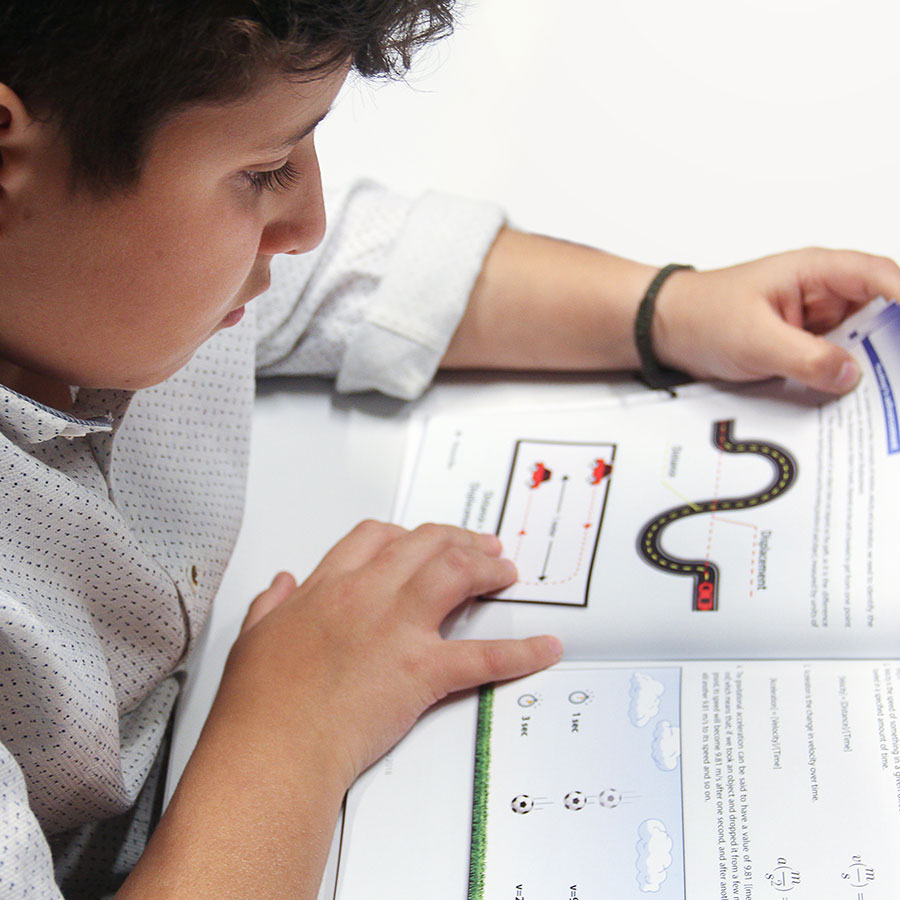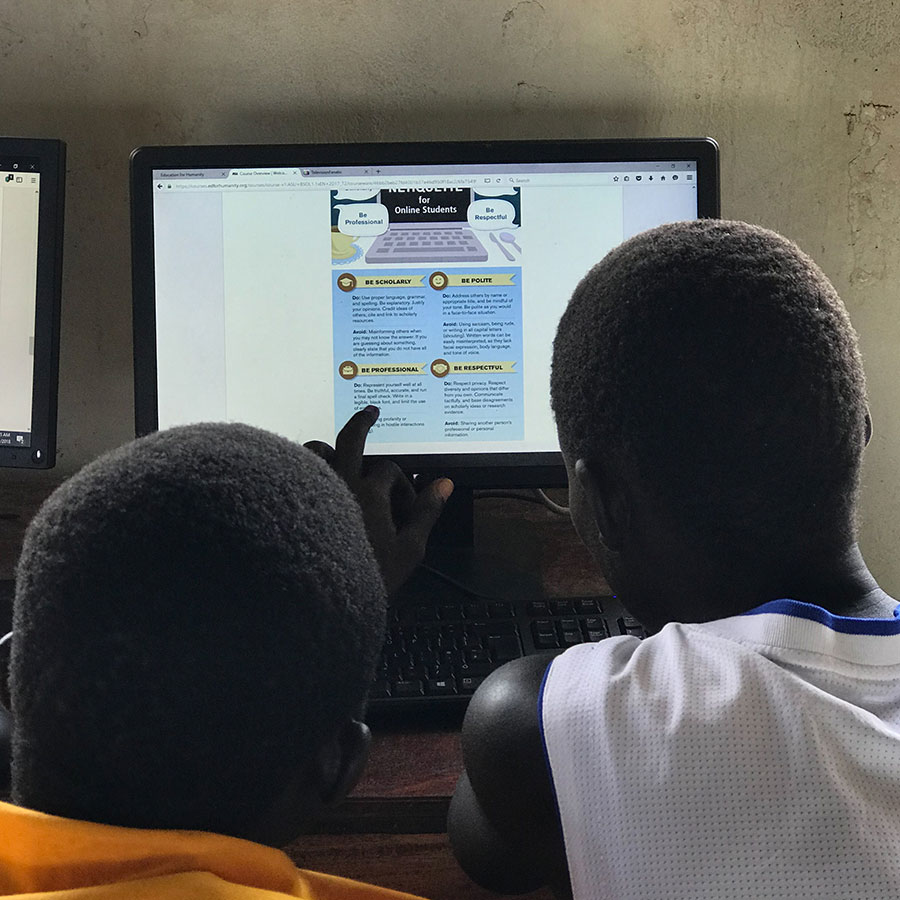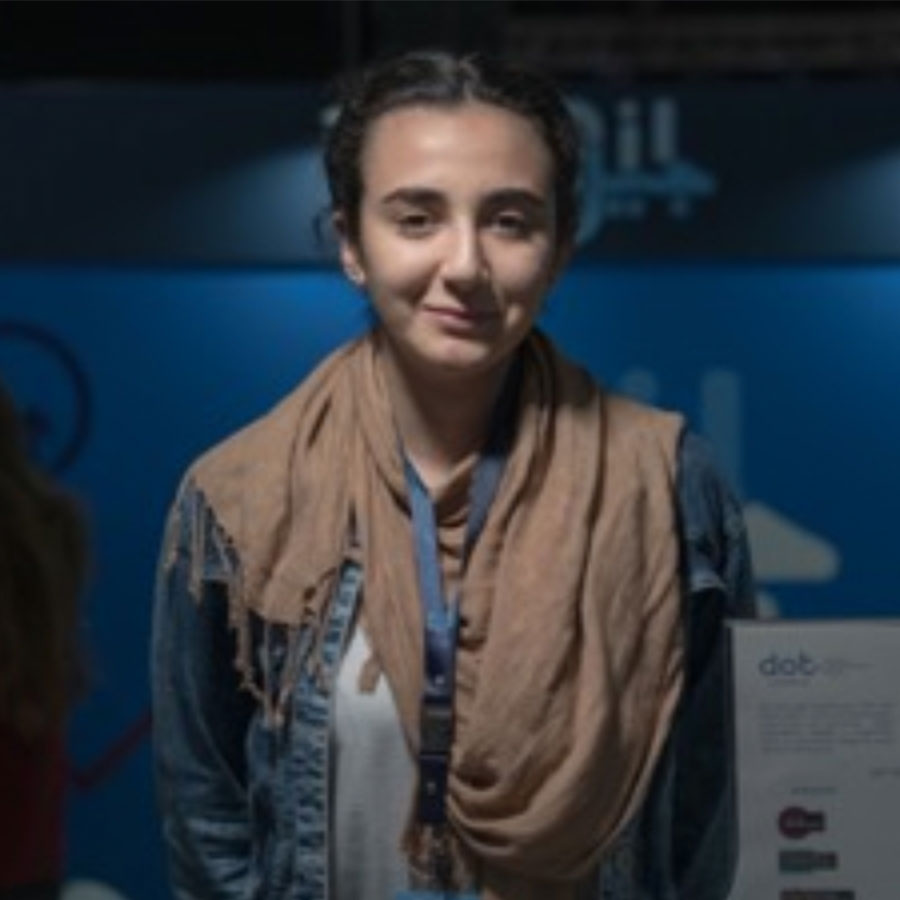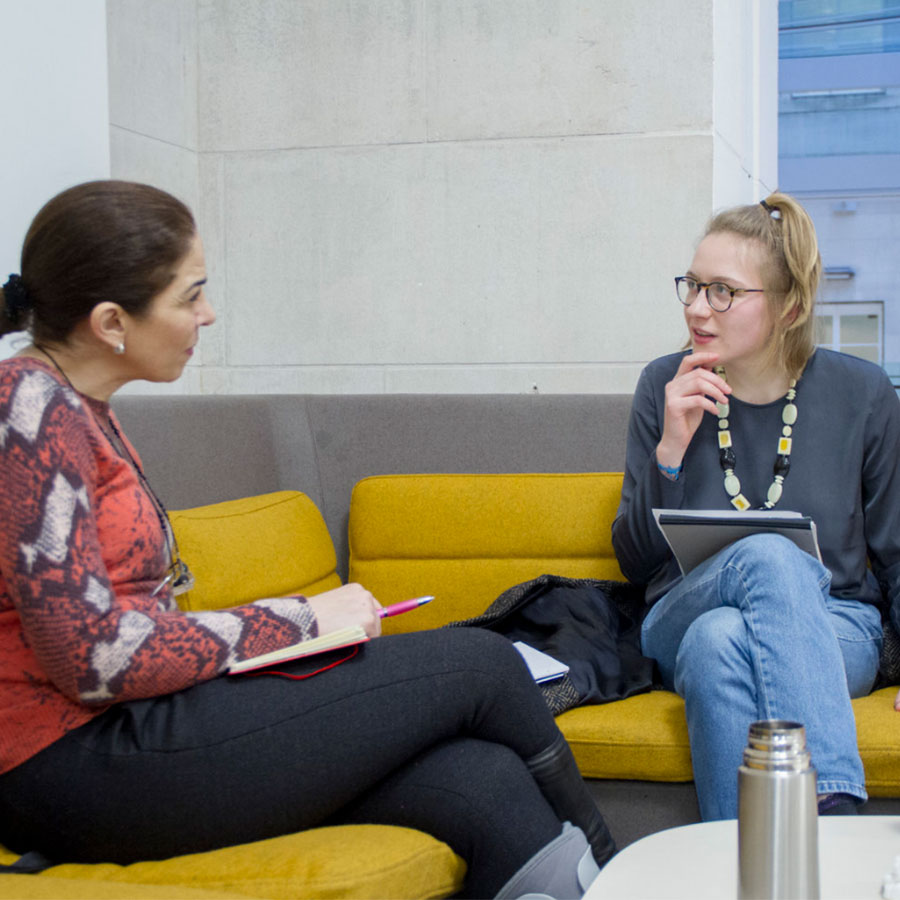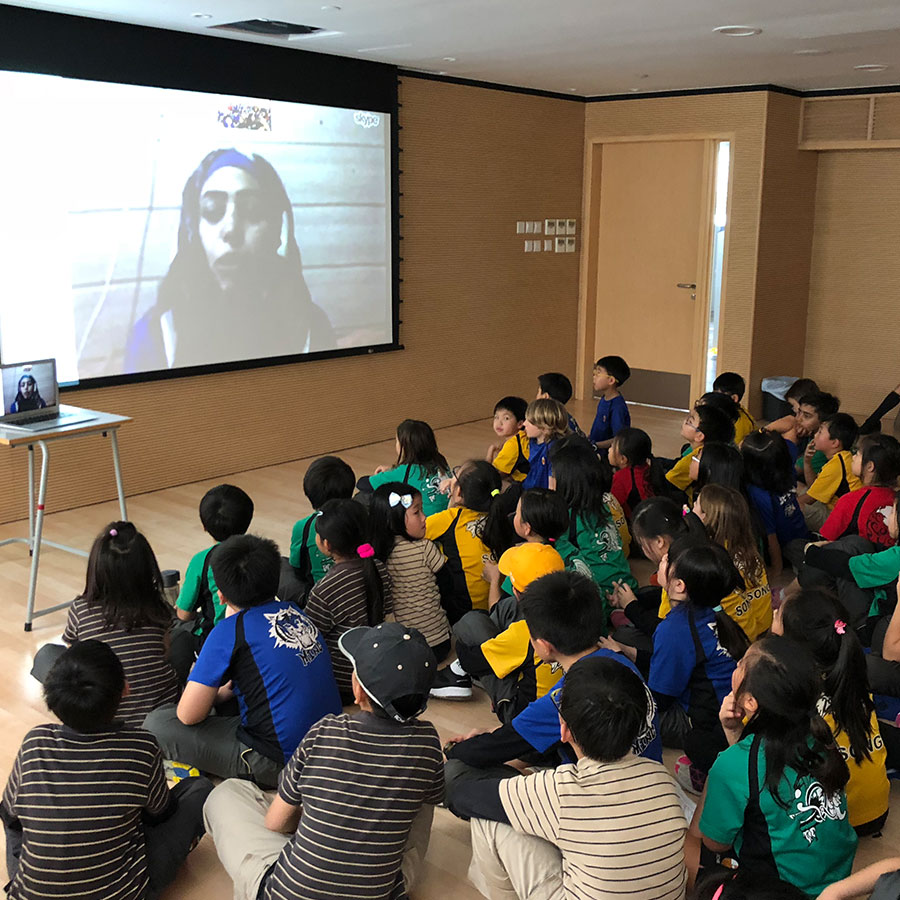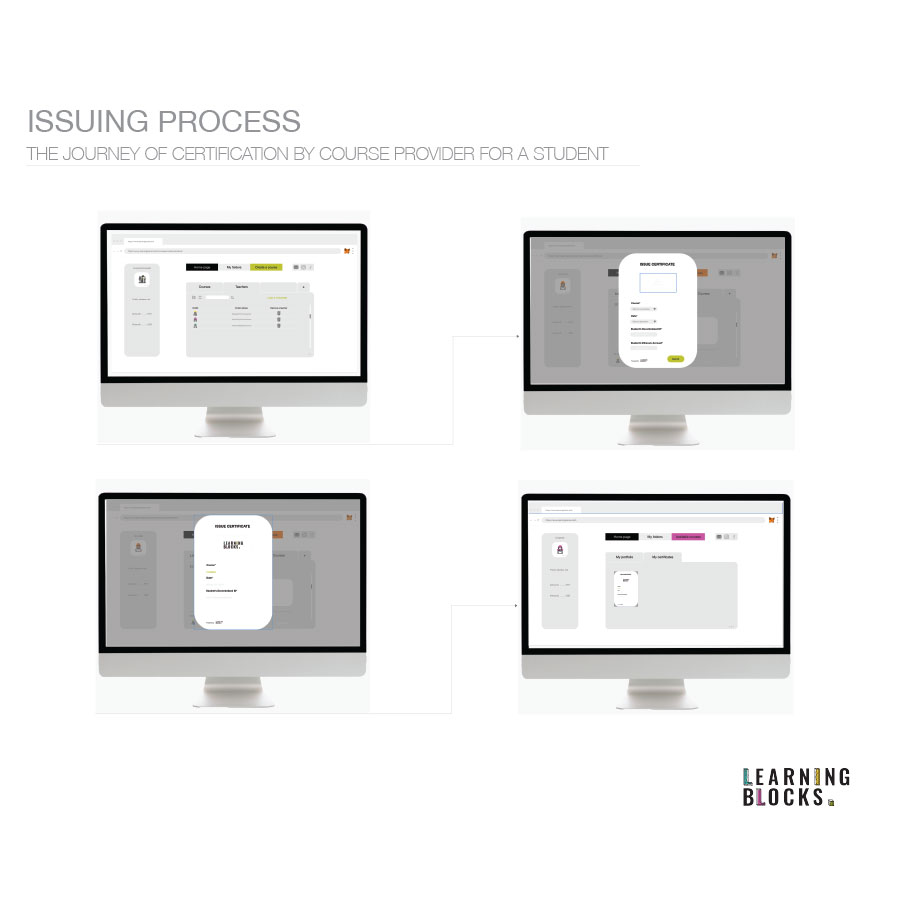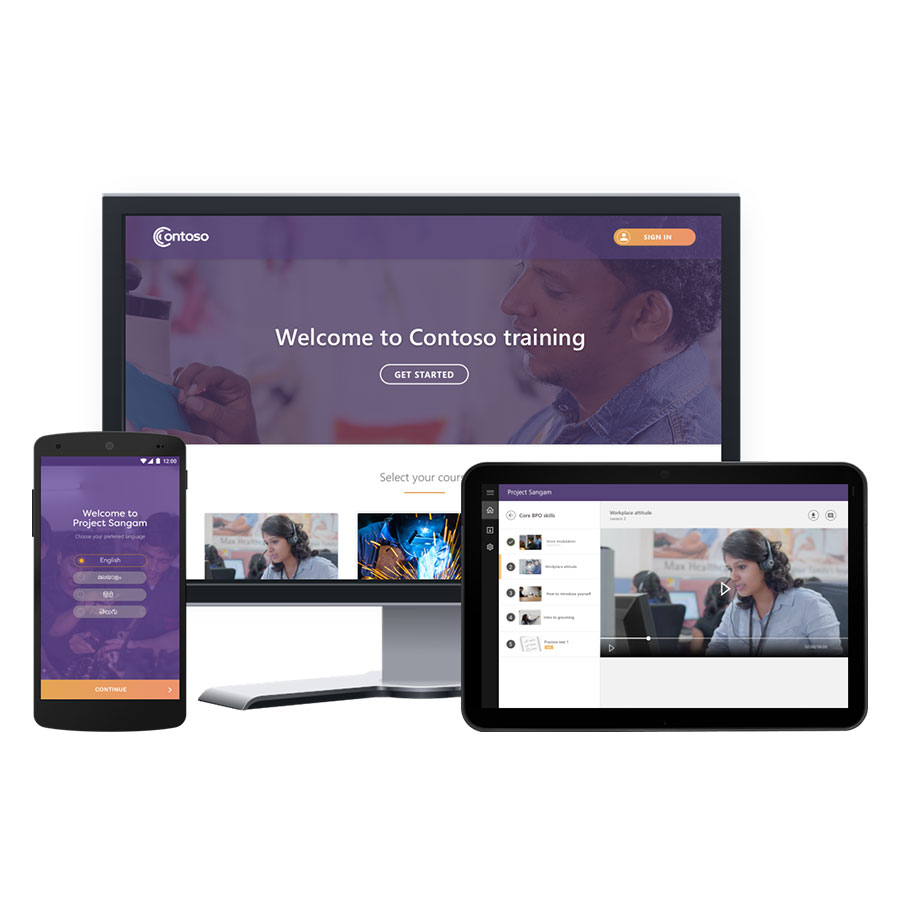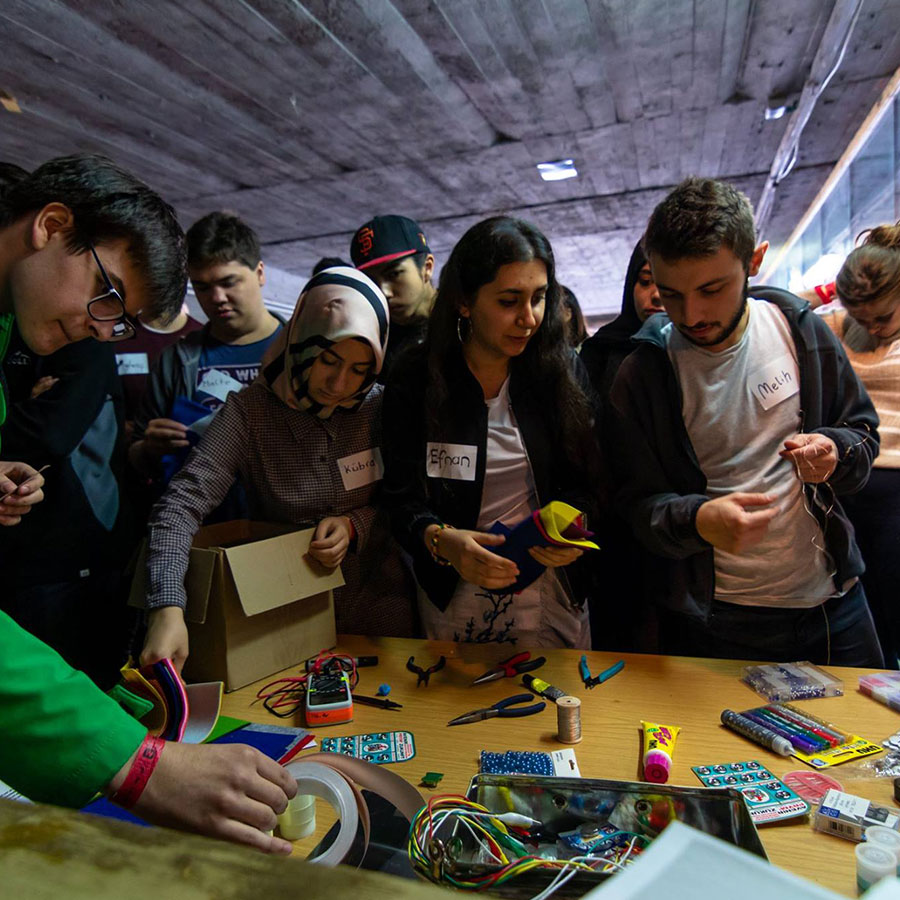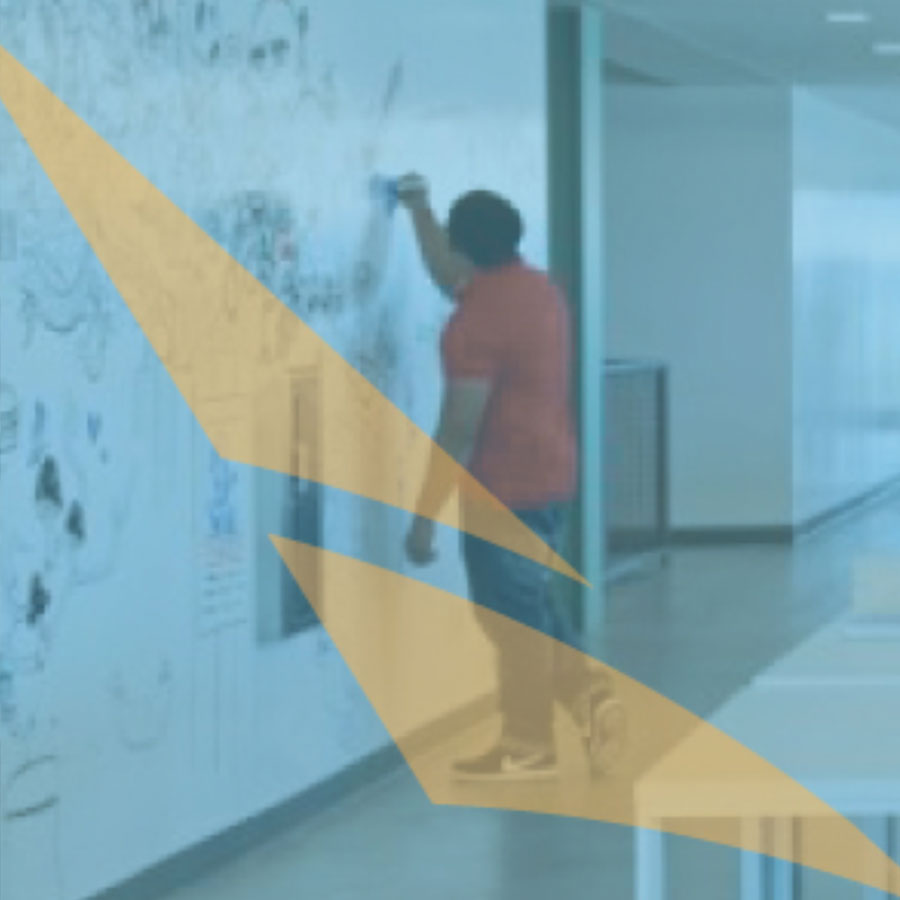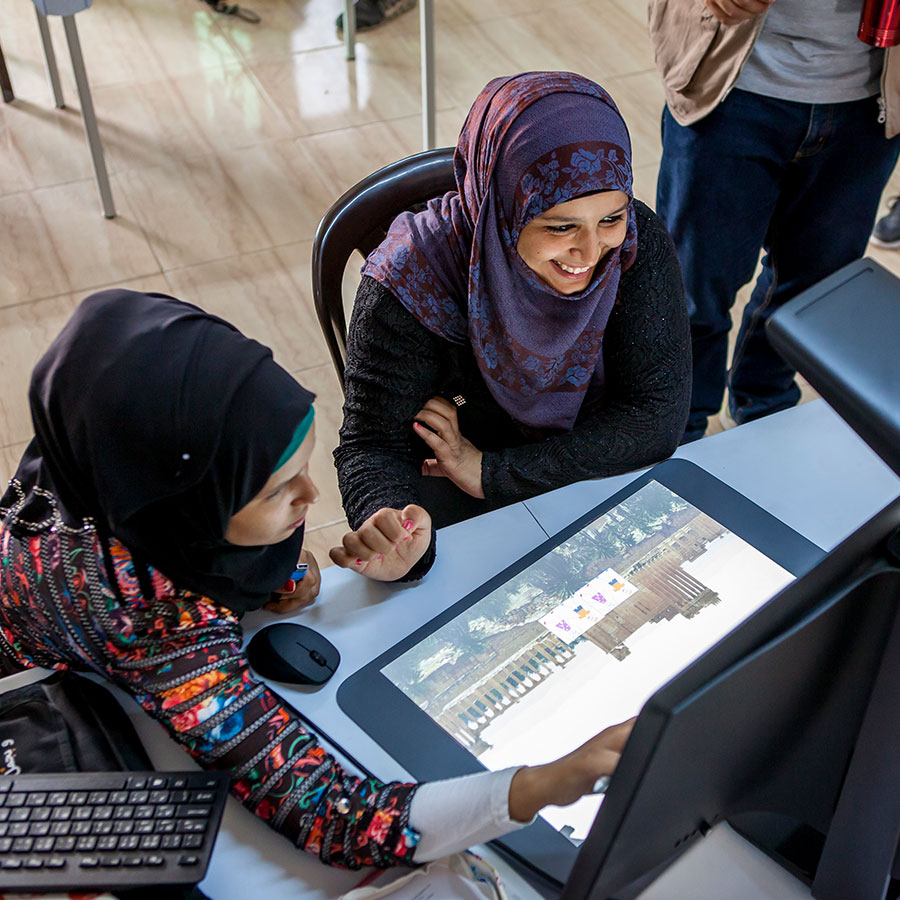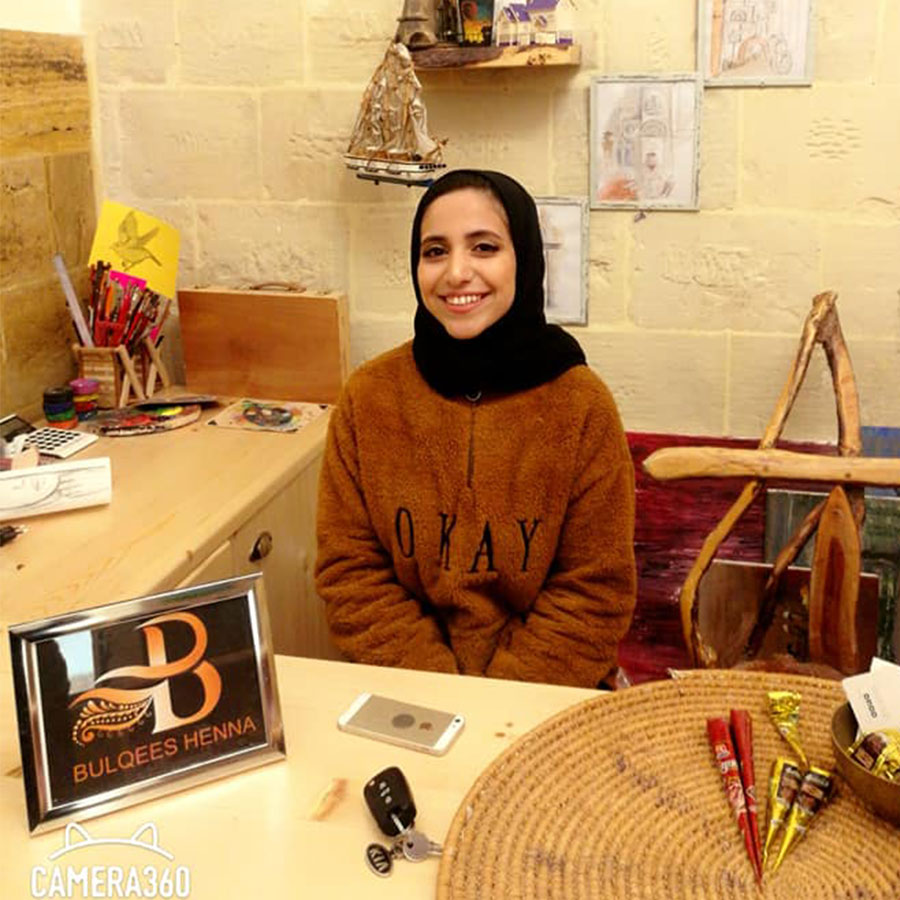Marketplace
The No Lost Generation Tech Summit Solution Marketplace brings even more Learn to Earn opportunities for adolescents and youth across the Middle East and North Africa (MENA).
Each solution featured on stage at the Summit and here in the Marketplace applies the power and promise of technology to the potential of the emerging youth workforce across the Middle East and North Africa. Read on to learn more about the vision, creativity and passion behind each solution connecting learning to earning for youth in the MENA region.
On day two of the Summit participants will have the opportunity to engage with more than 20 organizations, academic institutions and businesses passionate about providing the future workforce with quality education and better employment prospects across the MENA region and beyond.
Read on to learn more about the vision, creativity and passion behind each solution connecting learning to earning for youth in the MENA region. Visit the Solution Showcase to see which solutions will be featured on the mainstage at the NLG Tech Summit in Amman, Jordan on June 25th.
3Du (online only)
3Du utilizes modern technologies in the development and implementation of educational services, models, and curricula, each customized by the age group and focused on developing 21st Century Skills. 3Du is committed to making its programs accessible to adolescents and youth ages 10 - 15, in remote areas, refugee camps, and under-served urban areas.
3Du’s Makers Universe is designed for students ages 10-15 and consists of four levels with a focus on smart prototyping,. The first level teaches students about Physics fundamentals through storytelling, open discussions, and 3D printed experiments. The second level covers the fundamentals in Hydraulics and Mechanics, through experimentation, case studies, and simple projects. The third level introduces students to micro-controller, coding, and in depth digital design. The final level is project based, where students utilize all that they've learned in the past levels to create functional prototypes.
Makers Universe enables vulnerable young people to develop 21st century skills and gain employment in tech and science-based sectors.
3Du plans to initiate deployment of this solution in countries throughout the MENA region within the next few years. Expanding the deployment zones is made possible through the right partnerships and resources. Expansion will begin with the Palestinian territories, Kuwait, and Egypt. Followed by Saudi Arabia, UAE, Tunisia, Morocco, Lebanon, and Iraq. 3Du has chosen these countries due in partnership with an organizations that operates in each country.
Location: Jordan
https://www.3dujo.org/
Arizona State University
The goal of the Arizona State University’s Be a Successful Online Learner (BSOL) series is to prepare college-aged refugees, displaced young people, and marginalized youth ages 15 - 24 for success in pursuing online learning opportunities and future employment.
The BSOL series includes four modules designed to help students be successful in an online learning environment. This course was created based on the need identified by refugee learners and was designed in collaboration with youth, instructional designers, curriculum experts, and humanitarian agencies.
Learning modules such as Starting Your Online Journey covers topics including writing a personalized learning plan, taking notes, communicating with professors via email, and engaging in online learning communities. Study Skills covers strategies for time management and Information Literacy helps learners understand how to evaluate the validity of the information they read online and cite sources. Each module takes from five to ten hours to complete, depending on the learner’s English proficiency. The final module is a capstone, where students reflect on and apply lessons learned to their future goals and ambitions for online learning.
Location: Jordan and Lebanon
B.O.T. Bridge. Outsource. Transform
Bridge. Outsource. Transform. (B.O.T.) is Lebanon's first impact sourcing platform that connects skilled unemployed youth from marginalized communities in Lebanon with digital livelihood opportunities by utilizing their skills to work on projects for companies from different sectors.
To date B.O.T. has worked with Oliver Wyman, OLX, International Rescue Committee, World Vision, War Child Holland, Euro-Mena Consulting, NASCO, HiCart, Soliya, Libaladi, Ruwwad, Lebanon Support, Fabric Aid, Lebanese League for Women in Business, UNICEF, IOCC, Everythink, Caritas Lebanon, Jaleesa and Digital Opportunity Trust – Lebanon and many more.
Youth work through a virtual or office based approach and use B.O.T.'s online platform to complete tasks such as data entry, data cleaning, data visualization, image annotation, and others.
To increase the workforce of B.O.T, DOT Lebanon provides specialized digital training including Digital & Media Literacy, Social Media & Marketing, Mobile Application Development, Micro-Work, etc. in addition to tailored programs that are born from technological needs of the market. At the end of the courses, the trainees are linked to B.O.T in order to get skills assessment and start generating income. In 2018, DOT Lebanon through it's partnership with the Generation of Innovation Leaders program by UNICEF trained and referred 3,365 and referred 2,035 youth above the age of 18 to B.O.T.
To date, B.O.T has worked with 160 youth from marginalized communities. Collectively they have generated income of over $67,000.
Location: Lebanon, with a plan to expand regionally and to the Gulf Region.
http://letsbot.io
Chatterbox (online only)
Chatterbox is a social enterprise created by refugees for refugees. It helps displaced professionals earn a dignified living, improve their employability, and reclaim their professional identities by working online as language coaches.
Chatterbox coaches are paired with language learners from all over the world. The coaches are matched with the learners using an algorithm to ensure the best fit in terms of skills, needs, and interests. For example on the app, engineers are learning Arabic from fellow engineers and aid workers are learning French from medical doctors. Their language learning curriculum is also powered by AI, which reduces the training time needed for coaches to begin working. The platform has built-in video, messaging, and scheduling to enhance the learning experience and enable coaches to work from any location around the world. On the back end, the app builds a ‘digital CV’ of refugees’ hard and soft skills, which they can leverage to access even more opportunities.
In addition to providing language courses for individuals, Chatterbox organisational clients include several leading universities, the Red Cross, and the British Council. Chatterbox has helped to place 45% of their language coaches back into higher education or more permanent work.
Location: Worldwide
www.chatterbox.io
Please note: Chatterbox will not be participating in the Day-Two marketplace.
Connected Learning Hubs
A partnership between UNHCR and Google
As part of its education strategy to advance inclusive and equitable education for all in Jordan, the United Nations High Commissioner for Refugees (UNHCR), in collaboration with Learning Equality, and with grant funding from Google.org, is launching a network of 10 innovative learning hubs in community centers throughout the Jordan.
Mixing traditional face-to-face with e-learning, the Learning Hubs will offer advanced education courses for refugee youth and Jordanian nationals, aged 13 to 17 years old. Each hub will provide a resource for youth to access additional learning support, focused on subjects such as STEM, Arabic, English, life skills, and coding.
Each Learning Hub will be situated at community centers run by UNHCR local partners, including JOHUD, IRD, and CARE. The Hubs give students, as well as their family members, the opportunity to study at their own pace, supporting a variety of learning styles and abilities in a protective environment. Over the past months, 43 coaches and coordinators, many of them refugees themselves, have undergone training to ensure that they are able to facilitate the needs of the students. A key objective of the Learning Hubs will be to encourage both girls’ education and those with special needs.
The Learning Hubs will be equipped with laptops and tablets to support 40 students each day in accessing and interacting with digital learning resources. The learning model is based on the Kolibri ecosystem, which brings online learning to offline communities, especially effective in rural areas and refugee camps where internet access is limited. Kolibri provides a valuable means for students to continue their learning and contains a wealth of digital materials and information, such as lesson plans, assessment tools, books, and games catering to a wide range of ages and abilities.
Location: The centers are located in different locations throughout Jordan, seven centers in Urban areas and three centers in camps.
Integrated - Let’s Live in Harmony
UNICEF, the Ministry of Education, and Integrated International have partnered together to develop a multi-media approach to tackling social cohesion in the classroom. The solution, Let’s Live in Harmony, is a multi-faceted approach to respond to the educational needs of vulnerable children. The platform enables children to strengthen literacy while building a vocabulary of self, other, acceptance, respect, and harmony. A digital library of stories and teacher-led activities enable the class to put those principles into practice.
Let’s Live in Harmony is currently being delivered by 400 teachers across four grades in 100 Schools and reaches 20,000 children in Jordan. With the support of the Ministry of Education, 120 stories were co-created and mapped to the Jordanian early grade curriculum, aligned with the Jordanian culture, and reflective of regional values. Let’s Live in Harmony is designed to impact social emotional learning, literacy and social cohesion among students, with results anticipated to support both inclusion and student learning.
UNICEF has provided 25-30 tablets per school, which are circulated between classes, enabling up to six students to use the tablets, with a 1:1 tablet: child interface. Tablets are stored within charging stations produced locally, and designed for ease of storage, transportation, and battery recharging.
With support from UNICEF and UKAID, and in partnership with the Ministry of Education, Integrated International plans to expand the Let’s Live in Harmony program beyond the scope of the original pilot to support even more students in literacy skills and social cohesion.
Location: Jordan
Kamkalima (ONline only)
Kamkalima is an educational platform for teaching and learning Arabic, suitable for conflict affected and displaced children and youth ages 10 - 24. Kamkalima works in non-formal education settings by facilitating pathways back to formal education and equipping learners with robust life skills, and other relevant knowledge.
Kamkalima’s digital content covers core language competences in reading, writing, and listening. Content is aligned with national curricula making it an effective tool for formal education. Six cross cutting themes including career orientation, physical and emotional health and well being, and sustainable development are incorporated into the curriculum.
Kamkalima’s Machine Learning algorithms and deep analytics asses gaps and support targeted interventions to achieve better learning outcomes for children and youth.
Kamkalima has been adopted by over 70 education service providers across six MENA countries and serves 20,000 learners between 10-18 years old.
Location: Egypt, Jordan, and Lebanon.
www.kamkalima.com (
Learning Blocks
Learning Blocks is a skills-based education certification system powered by blockchain technology that is designed to give refugees and displaced people a way to effectively certify their learnings. Learning Blocks certifies individual skills, courses, and workshops rather than providing a single diploma from a single school or university.
By utilizing blockchain technology, Learning Blocks enables vulnerable and displaced learners to establish a complete certified educational record that is portable, immutable, and permanent. Teachers from participating organizations can log into the system and issue certificates for their courses that are immediately deposited into the refugee student's account upon passing a course. Students can see all the courses they have taken from different providers in one place. Every student receives a portfolio of their learning accomplishments that they control, and can share with future employers and educators anywhere and anytime.
Creating a more efficient and reliable education certification system that recognizes skills-based rather than just institution-centered credentials is a crucial link between learning and earning. Learning Blocks is also in the process of building comprehensive certificates that illustrate the learnings of the student with the options to include links to their projects, assessments, and teacher recommendations to the certificate details. Doing so will help future employers better assess skills that they have to offer displaced people jobs.
Implementation Location: Jordan, and Lebanon.
Startup Location: New York, USA
www.learningblocks.tech/
Mahali Lab
Mahali Lab is a community-driven innovation initiative in Jordan, designed to enable Syrians and vulnerable Jordanians affected by the Syrian crisis to help identify problems in their community, and develop local solutions.The Lab was set up by the Jordan Country Office of the International Rescue Committee (IRC) in partnership with the Airbel Center.
Engaging populations affected by war and disaster through a community-driven innovation processes is a new approach to humanitarian assistance. Mahali Lab puts members of communities affected by crisis in charge of every step of the innovation process — from selecting which problems to focus on, to generating prototyping and prototyping ideas, and enabling them to participate in a wider adoption.
By emphasizing community choice and maximizing local engagement in the innovation process, the Mahali Lab hopes to build partnership focused humanitarian response with the belief that this approach will lead to more cost-effective and scalable solutions over the long term.
Location: Jordan
http://bit.ly/2LBYKnQ
Microsoft
Microsoft’s Project Sangam is a cloud-based solution that focuses on helping unemployed refugee youth acquire skills needed to enter the workforce in their local markets. Project Sangam offers packaged courses on digital literacy that cover Microsoft Office products as well as internet and cloud technology; and soft skills courses to help youth prepare for any job in any industry.
In the development of Project Sangam, Microsoft has worked closely with people between the ages of 18-30 years on the design of the platform, and has done extensive research when designing the features and user experience.
Sangam offers a mobile friendly interface, offline access, an easy onramp for those with low digital literacy, and reporting and analytics tools.
UN/NGO agencies and others can use Sangam to tailor-make their own training programs, track program progress, and measure outcomes. Organizations can manage content, users and analytics all in one place with the Management Portal, and use data to drive adoption and engagement of their training programs.
Location: Egypt. Plans include expansion of the program to other MENA countries and South Africa, Kenya, and Zambia.
www.projectsangam.com
Re:coded
Re:coded is a tech for good organization preparing conflict-affected and vulnerable youth to enter the digital economy as developers, entrepreneurs and tech leaders. Our intensive coding bootcamp prepares participants with the training and support to enter to work force as developers. Technical sessions are blended with sessions that focus on soft skills, with the goal to increase their employability and entrepreneurial potential.
Once participants complete the technical and soft skills portion of the curriculum, they are placed in apprenticeships or internships with companies looking for technical talent. Participants work for eight weeks to build their portfolio and gain work experience.
Re:coded provides ongoing career support and additional training opportunities for participants for up to six months post-graduation.
Location: Iraq,Turkey, and Yemen.
www.re-coded.com
Torch Academy (online only)
Torch is a tech accelerator helping refugee and displaced adolescents and youth gain the skills they need to join the fast growing IT industry.
The accelerator offers a 14 week intensive boot camp aimed to specifically fill the skill gap of university graduates in Computer Science disciplines. Torch prepares graduates to start their own start-ups through having a working MVP by the end of the program. Over the past 3 years, Torch has become a go-to resource for all universities in Lebanon interested in getting their graduates ready to find work in Lebanon.
Location: Lebanon.
http://torch.academy/
Please note: Torch Academy will not be participating in the Day-Two marketplace.
UNIGE InZone University of Geneva
University of Geneva’s InZone program facilitates learning for refugees and host communities living below the poverty line by supporting them in setting up Higher Education Spaces.
The objective of the program is to empower refugee youth, ages 18 - 24, to build livelihoods in an environment where agency is severely restricted, like refugee camps.
In the Higher Education Spaces, post-secondary learners have access to formal academic, non-formal academic, and informal programs. The formal academic programs are accredited through the University of Geneva or partner universities with a focus on meeting needs relevant to each of the refugee camps where InZone is located. The main areas of focus for the formal academic programs include medicine, public health, engineering, and human rights. Non-formal academic courses cover similar domains, and are intended to provide access for learners who do not yet meet the more stringent admission criteria of a university. Informal programming is dedicated to social-emotional learning to equip students with the entire range of 21st Century skills. Students who have lived through conflict, war and often suffer from trauma are empowered to share the skills learned with their community.
Spaces are equipped with field-tested hardware, RPis incorporated in laptops or small hand-held mobile solar-powered servers, and mobile phones to support the increasingly extensive use of messaging platforms in on-line and blended learning.
Location: Jordan
http://unige.ch/inzone
University of Jordan
The University of Jordan Innovation and Entrepreneurship Centre (UJIEC) serves a community of more than 47,000 university students across all sectors and schools including medicine, engineering, IT, and humanitarian. The program supports students between the ages of 18-24 from diverse social and cultural backgrounds, coming from different cities across Jordan.
The Centre provide a variety of services including, entrepreneurial skills development, networking opportunities, and a micro pre-seed fund to help students develop and build industrial prototypes, websites, and mobile applications.
To date, the Centre has provided training for more than 3,000 students, participated in more than 23 national and international competitions, and launched 10 startups and spinoffs.
Location: Jordan
www.facebook.com/JUIEC
